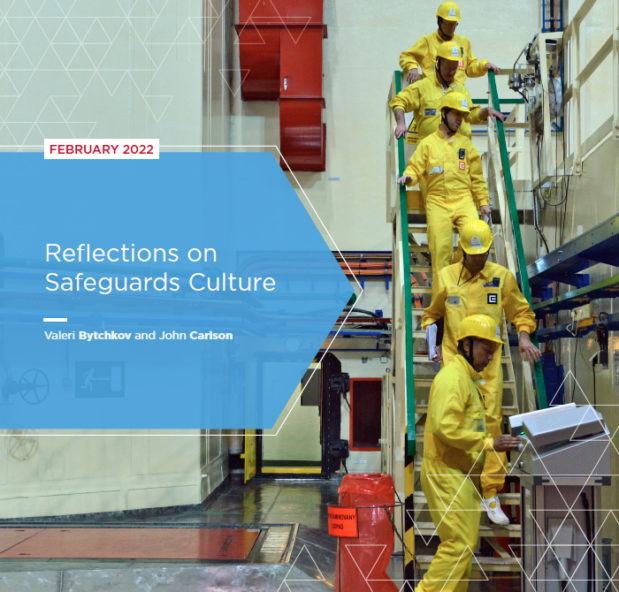The following is an excerpt of an article written by John Carlson, Non-Resident Senior Fellow, VCDNP, and co‑author Valeri Bytchkov. The full article was published on 4 May 2022 by the Nuclear Threat Initiative (NTI) and the Center for Energy and Security Studies (CENESS).
The paper points out that, consciously or unconsciously, safeguards culture – reflected through underlying values, attitudes and beliefs – affect the way safeguards are approached in the various organizations involved in safeguards. The paper suggests that development of a well-designed set of cultural guidelines can be expected to have a positive effect on the application and perception of safeguards within states and internationally. Characteristics of safeguards culture identified in the paper include: a shared vision to preventing nuclear weapons proliferation; a cooperative approach to advancing non‑proliferation goals; credibility and integrity in safeguards implementation; regulatory independence in the State concerned; and a proactive approach by the IAEA and Member States in fulfilling their safeguards obligations.
This was one of four papers recently produced under the NTI/CENESS project “The Future of IAEA Safeguards: Rebuilding the Vienna Spirit through Russian-U.S. Expert Dialogue.” The project yielded an initial round of papers from preeminent safeguards experts in 2020.

